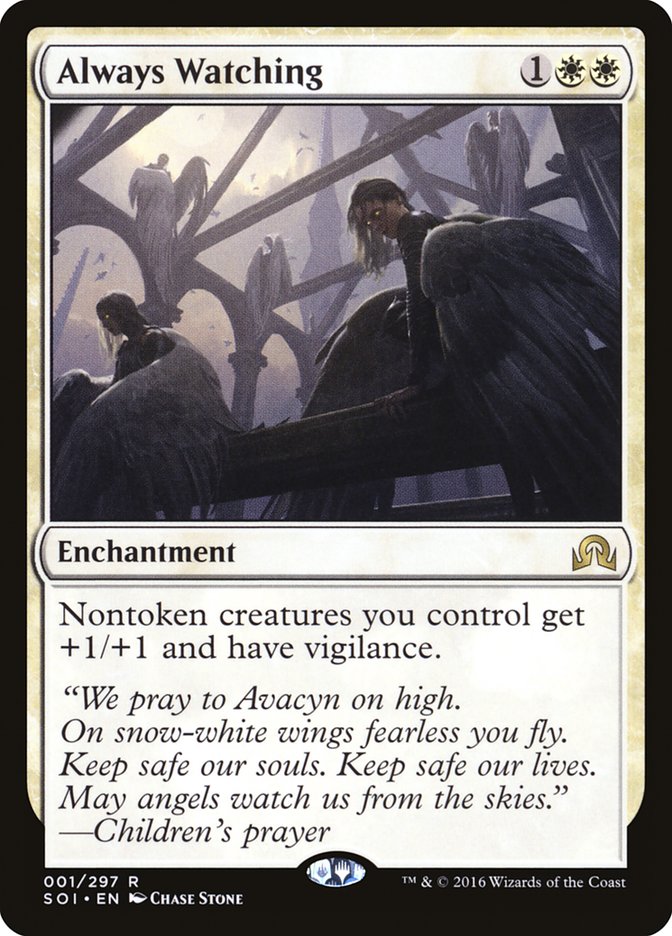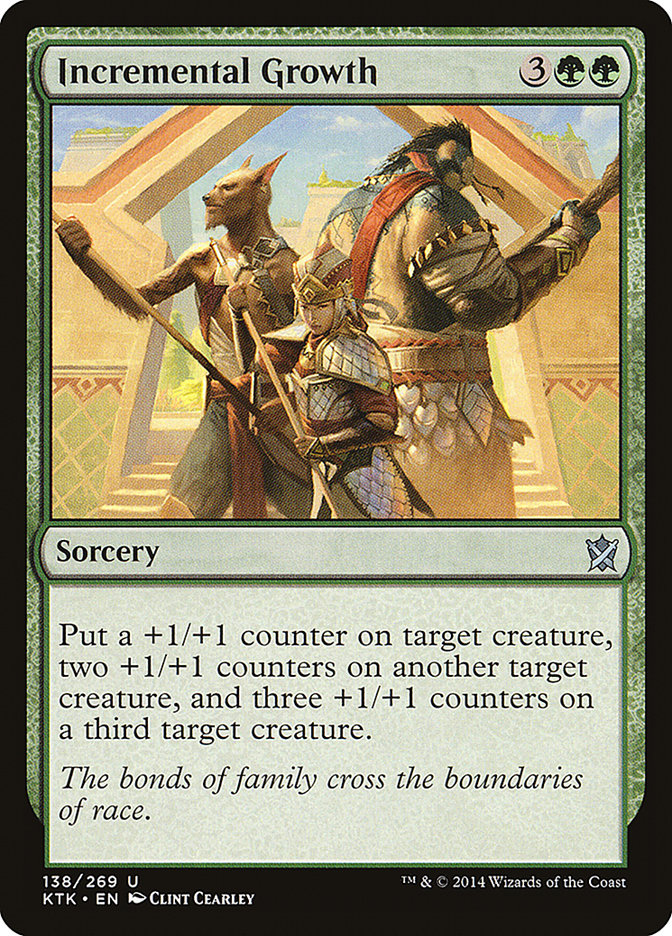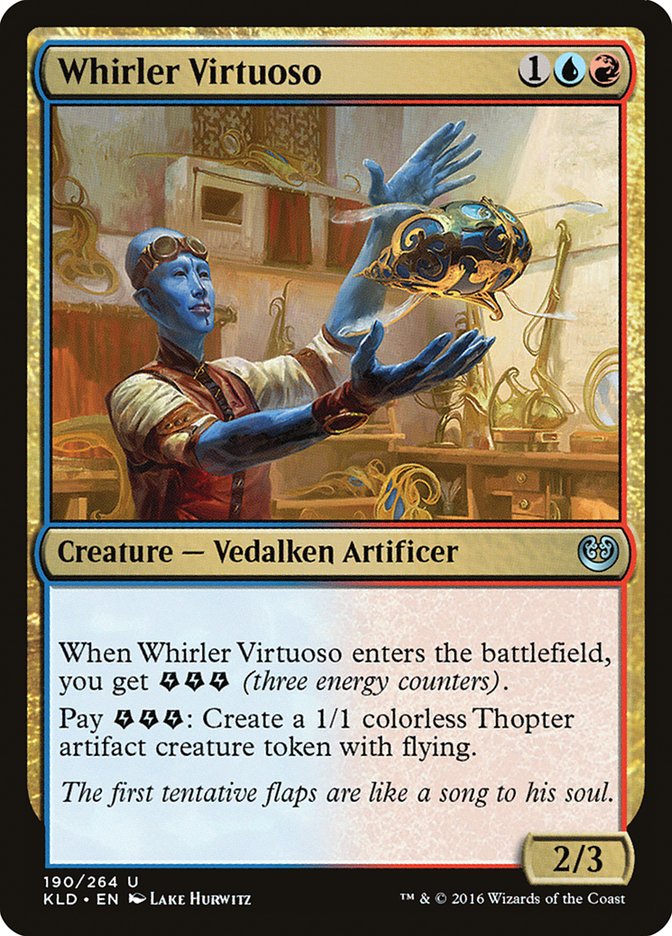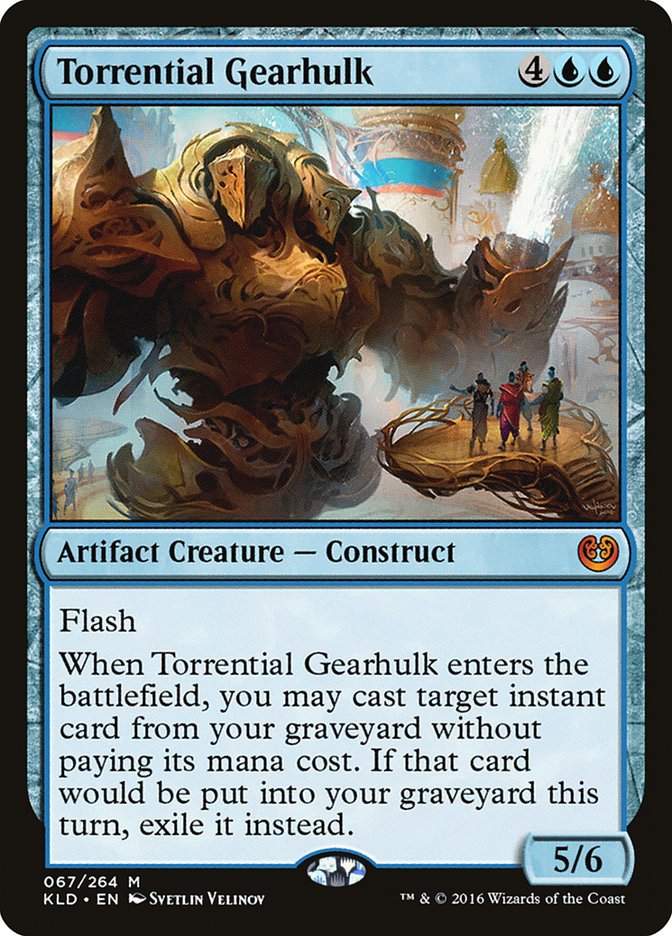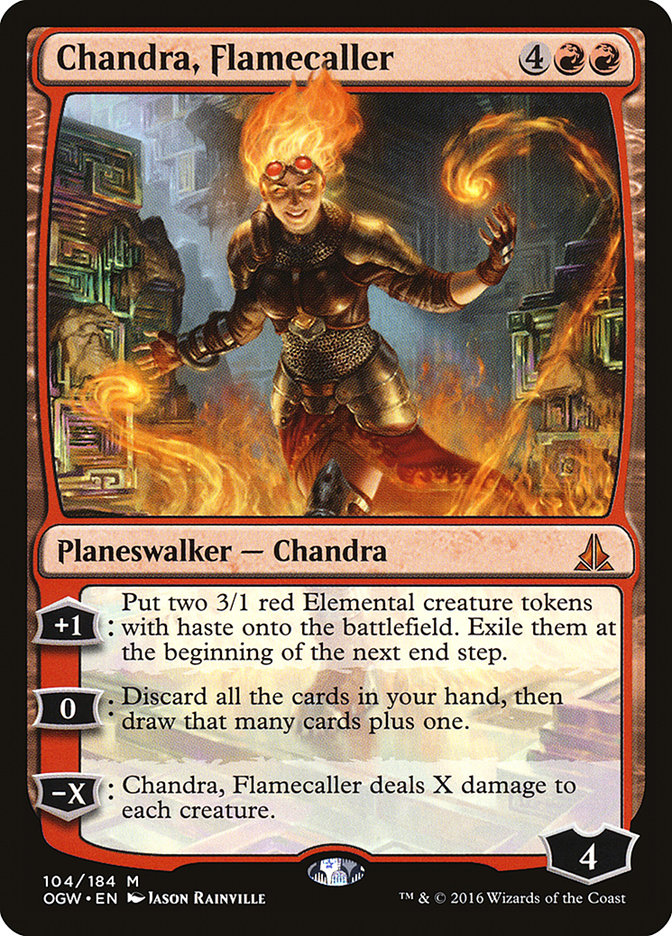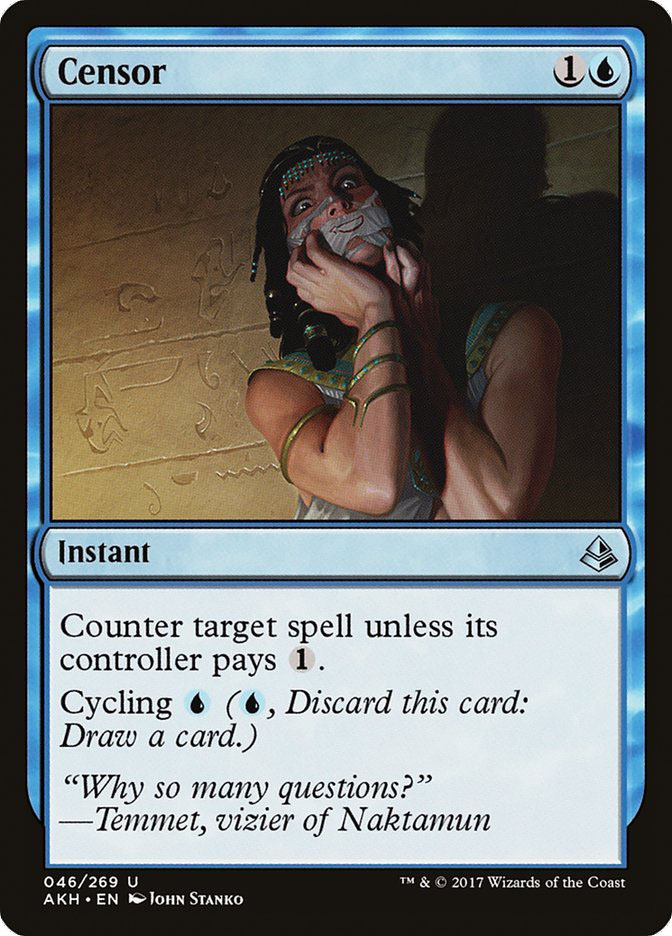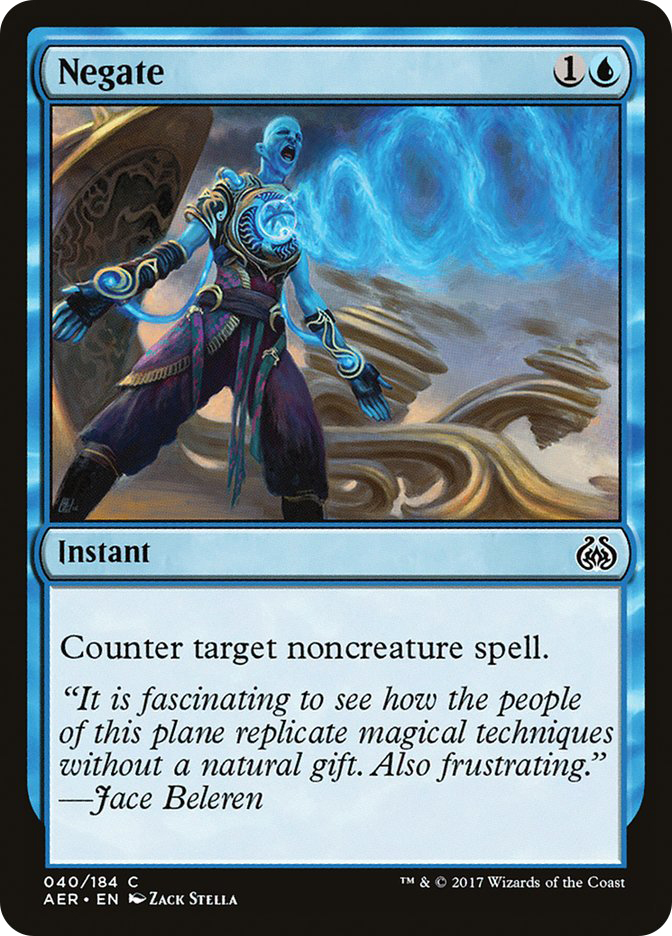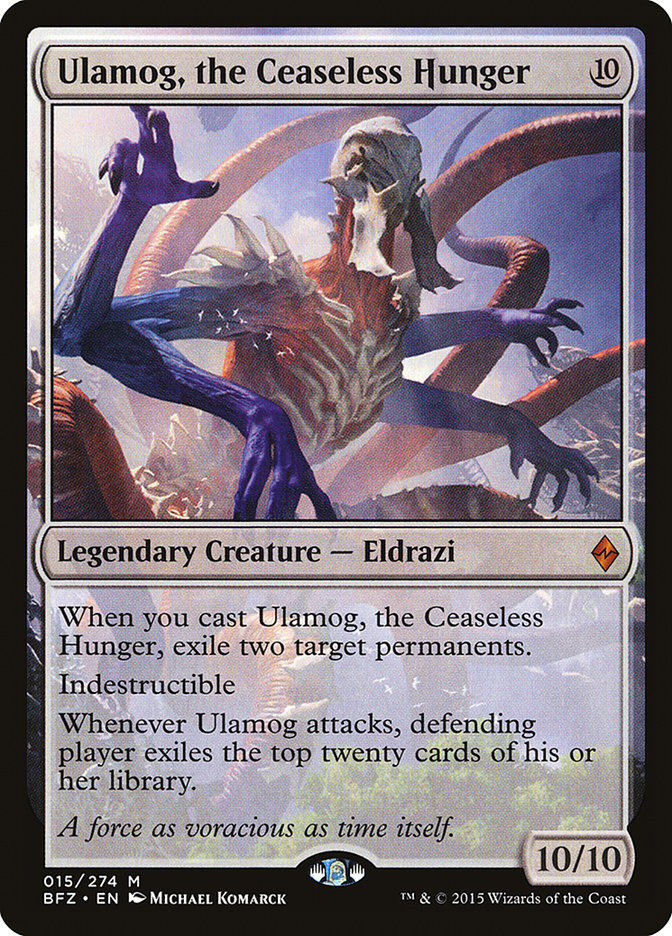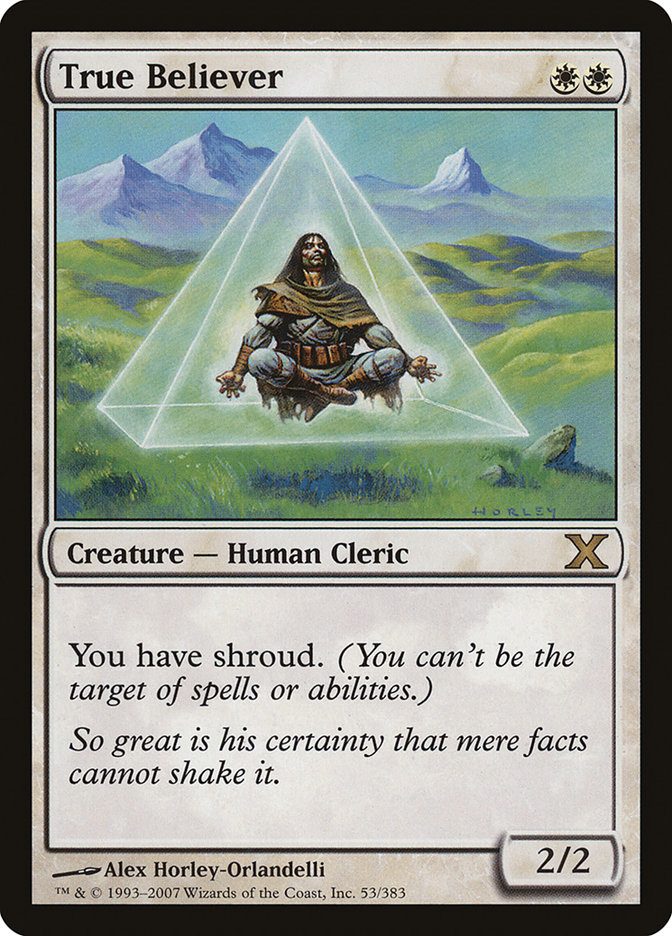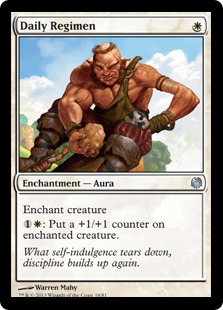It can be tough to ride the ups and downs of tournament Magic. Sometimes you enter the perfect storm, picking the best deck for the metagame, playing out of your mind, and you get to take home the trophy. At other times, you miss one or two of those key elements and fall flat on your face. Lately, I’ve been experiencing the latter, and it had me not wanting to show up. In fact, I’ve only played a handful of live events in 2017, but that’s all about to change.
For weeks, even months, I’ve just been watching, not really a part of shaping Standard, Modern, or Legacy. Instead of experiencing things firsthand, I relied on what others told me and formulated my own opinions. Obviously, I haven’t stopped playing completely, and instead of live events, I chose to focus more on Magic Online and trying to qualify for the Pro Tour. But I wasn’t putting my heart into it. I wasn’t going to PPTQs and trying to qualify for RPTQs. Instead, I was happy playing a PTQ on Magic Online every other weekend and enjoying my time off. I got to catch up on a lot of TV shows, play a few video games, and even participate as a groomsmen in the wedding of one of my best friends.
It hasn’t been all bad.
But this past Friday, Brad convinced me to go on a trip with him and Ross Merriam to Baltimore for the Modern Open. I didn’t go in with high expectations, and I didn’t think I’d be at my best, and I was right. After six rounds, I had played a lot of fun, interactive games with Grixis Death’s Shadow, playing the same list that Brad used to win the tournament.
Creatures (16)
Lands (19)
Spells (25)

But a pair of minor mistakes cost me a match, and fate decided two others, and that was that. And when I say minor, I mean playing a Watery Grave before casting Serum Visions that ultimately hit a Bloodstained Mire, which would have made my Death’s Shadow a 4/4 instead of a 3/3, which would have turned on my Stubborn Denial against Storm.
So yeah, it was minor in terms of sequencing errors, but obviously one that cost me the game on the spot. Seeing lines like that is pretty tough, and it’s one of the reasons why I really like Death’s Shadow decks in general. They’re complex, and many of the games feel like you’re playing Legacy. While you don’t have Brainstorm to prevent flooding, you have a lot of manipulation, redundancy, and cheap spells that often outclass opposing spells that cost one or two more mana. And like in Legacy, even the smallest mistake can make all the difference.
I was rusty, and I’m not going to make excuses. I haven’t played much Modern this year, and I haven’t played much live Magic to boot. It is much easier to keep track of life totals, triggers, number of cards in graveyard, etc. when Magic Online is doing it for you. You can use all of your mental energy on figuring out the best lines instead of wasting it on minor game mechanics. In a lot of ways, Magic Online makes you soft. This is especially true when you’re playing a deck with a lot of small functions that you need to be able to keep track of manually. I felt this immediately when I played my first match with Aetherworks Marvel in the Standard Classic on Sunday.
But for some reason, the losses didn’t hurt. Maybe I’m growing up, or maybe I’m getting too old to care. I’m not really sure, but the end result is that I didn’t let my losses get me down. In fact, I was actually quite happy that one of my losses was completely my own fault. Two of the others felt mostly out of my own hands, but I was fine with those two.
Maybe I’m just growing up. During the tournament, I was really hoping it was that, and not that I didn’t care anymore.
Saturday night was a good night. Instead of moping around and feeling down about my performance, as was the norm in nearly every major tournament I’ve played in the last three or four years, I felt good. We had a few drinks and a nice dinner with friends. Just a lovely, low-key evening. We discussed our futures in the Magic community, where we were heading as we progressed into our thirties, and whether or not Temur Box would have performed better for me than Grixis Death’s Shadow. And for the record, Brad really hates it when I say the words “Temur Box.”
So Saturday night came and went in a blur, and Sunday dragged by while I tried to find ways to burn the clock until we could go home. Instead of getting down on myself, I just watched people play Magic. I tried to see how certain decks interacted with each other. I tried to find the lines people would take before they did, and, even more importantly, I tried to understand why they took the lines that they ultimately decided upon. Every match I watched Brad play, I had ten questions to ask about the first four turns. Every sequence had multiple avenues to travel down, each featuring a different reward or punishment.
Instead of getting stuck in my own head, I got stuck in his.
So when it came time to leave, I left knowing that my weekend had not been wasted. After all, Brad won the tournament, and I was going to finagle a free dinner out of it. And on top of all that, I still had one more chance at qualifying for #PTHOU.
Spinning Wheels for Fun and Profit
Since Monday was a holiday, Magic Online randomly had a Standard PTQ for me to play. While I was pretty tired after getting home at three in the morning, thanks to Brad selfishly winning the tournament and keeping us there late, I snuggled into bed with a pile of blankets and three cats who were happy to see me. I woke up around 10am to shake off the cobwebs before the PTQ started at noon. While Standard isn’t exactly my favorite format right now, I knew that I would have to fight that negative feeling and just roll with it.
After talking to Brad on the drive home and on the morning of, I eventually came to this decklist for Temur Aetherworks.
Creatures (10)
Lands (23)
Spells (27)

Honestly, I don’t want to talk about Aetherworks Marvel all that much. Just know that I don’t like playing with/against it, how it plays out games, or that it lets you trigger giant Eldrazi, but you probably knew as much from last week’s article on the subject.
I want to start by saying that Whirler Virtuoso is a pretty mediocre card in the mirror, and that is the major reason I’m only playing one. It gets even more embarrassing when most Temur Aetherworks decks are leaning on Chandra, Flamecaller as one of their big finishers.
It does produce three energy, and can buy you some valuable time against an aggressive start featuring Heart of Kiran or other creatures without trample. It can also provide some bodies to trade against Mardu Vehicles, but that deck has lost a lot of traction recently. I just don’t know if it is worth playing more than one or two copies of Whirler Virtuoso anymore.
What I did like was trying to find out how I could fit more counterspells into my maindeck to fight the mirror. In all honesty, all I really wanted to focus on was beating the mirror. For most of the other decks, I was fine relying on getting a little lucky on my Aetherworks Marvel spins. No one can realistically beat an early Ulamog, the Ceaseless Hunger anyway. Against those decks, I would act much more like a dedicated combo deck. The real tension came when trying to figure out the big spells besides Ulamog, the Ceaseless Hunger.
This is a tough one to pick between. You obviously want one to three other medium-sized cards to hit off Marvel that aren’t Ulamog, the Ceaseless Hunger. You can only play four, after all (though some people actively choose to only play three for some reason). The big question was focusing on Torrential Gearhulk to help in the mirrors and against control decks or Chandra, Flamecaller to help clean up against Zombies. At the Pro Tour, Chandra, Flamecaller was an all-star because a ton more people showed up with Zombies than anyone realistically expected. But now, I don’t know if Zombies is actually good anymore. It has certainly seen a drop-off in popularity as of late.
Torrential Gearhulk plays well in the mirrors and against control, as does any instant-speed card. Not only can you force a counterspell war on your opponent’s turn, but you also get to cast Glimmer of Genius if they opt not to cast anything. Both Censor and Negate allow you some elements of control and let you have this mini-flash plan when the games start off slowly. I can’t tell you how many times I got my Rogue Refiner hit with a Censor, but it felt gross. I can only assume it was just as disgusting coming from my side.
While one copy of Torrential Gearhulk doesn’t really change all that much about how your deck plays, you’d be surprised how often you go through thirty or forty cards in your deck before finding an Ulamog, the Ceaseless Hunger. In those games, you need one or two more cards to bridge the gap for when you don’t hit your game-ending spell. After playing the tournament, I think I might want one more, but adding another card that costs six mana is not great for fighting this new, aggressive metagame.
Did I mention that this deck is great?
Creatures (22)
- 2 Tireless Tracker
- 4 Longtusk Cub
- 3 Bristling Hydra
- 2 Whirler Virtuoso
- 4 Servant of the Conduit
- 4 Rogue Refiner
- 3 Glorybringer
Planeswalkers (3)
Lands (21)
Spells (14)

After hearing Matt talk about his “Temur Box” strategy after winning the Standard Classic on Sunday evening, I was intrigued, but didn’t give it enough credit at the time. After all, why would I play something in Standard that wasn’t Aetherworks Marvel? Well, after Matt won the Classic, this deck went on to win the Standard PTQ on Magic Online too. That means I didn’t win, unfortunately. Instead, I took my first real loss in the quarterfinals to a different G/R Aggro deck after some misplays.
But still, you have to respect a person who goes deep into the Temur Box and comes out with this pile of awesome stuff. It’s not too reliant on energy and has cards powerful enough to steal games on their own. And it even gets to maindeck Negate! While it might not be your cup of tea, Matt ultimately took down a tournament featuring four copies of Aetherworks Marvel in the Top 8. That has to count for something.
This deck isn’t perfect, and it is just another energy-themed deck with some heavy hitters for the late-game, but that doesn’t mean it isn’t worth taking a second look at. One minor concern I have is that it looks a bit weak to Mardu Vehicles, but I haven’t played against that deck in quite some time. Perhaps Temur Box is in the perfect spot to steal the trophy at Grand Prix Omaha this weekend. Perhaps people will adapt and hope Mardu Vehicles can race Aetherworks Marvel. Either way, this Standard might not end up being as solved as I once thought.
But that still doesn’t make a turn 4 Ulamog, the Ceaseless Hunger any more palatable.
In the PTQ, I started off 6-0, facing six very different strategies. Only one of those was a mirror, and the others were just a smattering of what Standard has to offer: control variants, U/R Emerge, Delirium, and even the deck that ultimately won the tournament. I bested them all in the Swiss, but that doesn’t matter once you get to the elimination rounds. I could feel the lack of sleep catching up to me. I just couldn’t think through my plays as easily as in the first few rounds of the tournament. When it came down to it, I messed up multiple times, and those mistakes cost me a trip to Japan, and my first Pro Tour in over two years.
Chin Up
So here I sit, writing this article, thinking about what could have been. And you know what? I do care. During the PTQ, my fingers were shaking as I made my way to the elimination rounds. I couldn’t focus on winning the next round. My eyes were drifting, dreaming of making it back to the Pro Tour, and losing that match hit me pretty hard.
So how do you, as a player, keep your head up after such a tough loss? “There’s always a next time?” “You tried your best?” I keep telling myself that, but I don’t know how many shots I have left in me. I thought I was done, multiple times, over the last few years. I thought I would try to get into the commentary game, but each time I went to record an audition-tape I just couldn’t pull the trigger.
I’m not ready to give up yet. I’m not ready to throw in the towel.
I still have something left to prove, and I’m not going to stop until I’ve done exactly that. After 30, many athletes start looking at retirement. Magic isn’t a physically stressful game, so that isn’t really a consideration for me. I feel like a better player now than I’ve ever been, if only because I’m able to use all that knowledge I’ve gained over the years. But like any competition, you need to practice.
So I’m going to do exactly that. Practice. I’m going to bust my buns over the next six months and make a real run at the Pro Tour again. I’m not going to let anything get in my way, not even my biggest obstacle: myself. With the network of friends that I’ve built in the game, and especially those here in Roanoke, I’m just going to listen more. I’m not going to get lazy with deck selection. I’m going to put in the hours testing so that I’m not a bumbling buffoon when game time comes around.
I’m going to put my best foot forward and take one more shot. If I don’t make it, then so be it, but at least I’ll go down fighting, and I won’t always wonder “what if?” I know I can be a great player, but I also know that my drive is easily smothered by a string of defeats. You know what I felt after losing this past weekend, both in the Baltimore Modern Open and the Standard PTQ on Monday? I felt happy. It felt good to be playing again, even if I was losing. It felt good when I lost to my own mistake, knowing I could have done something different to potentially prevent that loss. And that feeling is what I’m going to hold on to, even when I take the tough losses. And it will make the wins all that much sweeter.
This weekend, I’ll be playing another Magic Online PTQ, and hopefully the Stockholm syndrome will kick in and I’ll love spinning that Marvel. Or maybe I’ll just play Temur Box. Either way, I’m going to test a bunch over the next few days and utilize my friends and the resources around me to make the best deck decision possible. And hopefully, I won’t let my nerves get to me.
Oh yes, the nerves. That’s not something I’ve felt in some time. Magic tournaments haven’t made my palms sweat that much in a while. That’s how I know I’m back. That’s how I know I’m in it. That’s how I know I’m ready to fight the good fight one last time.


